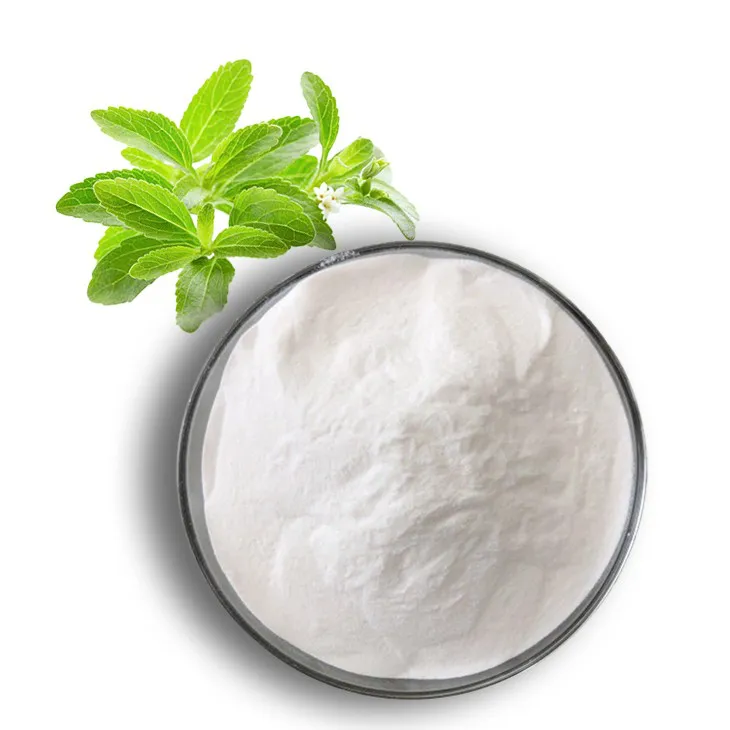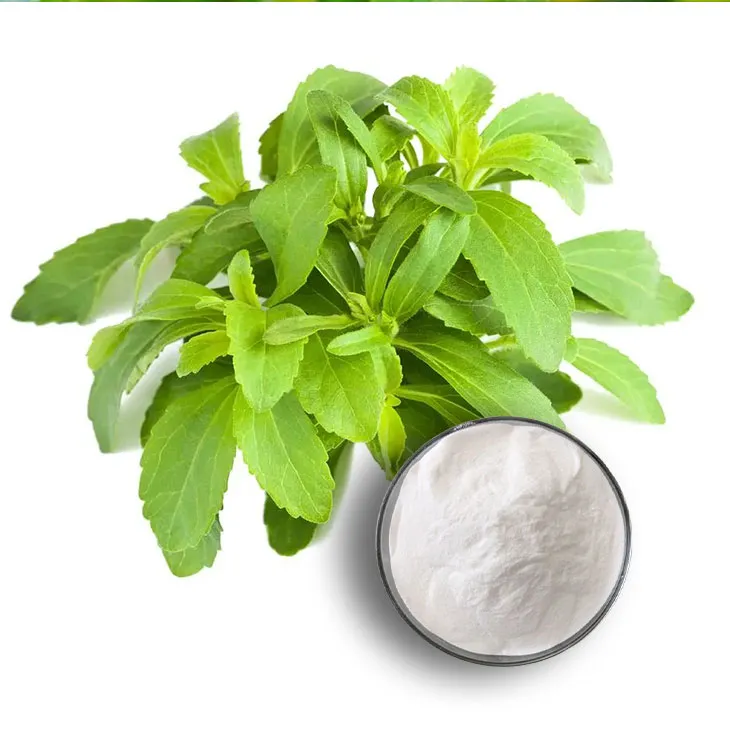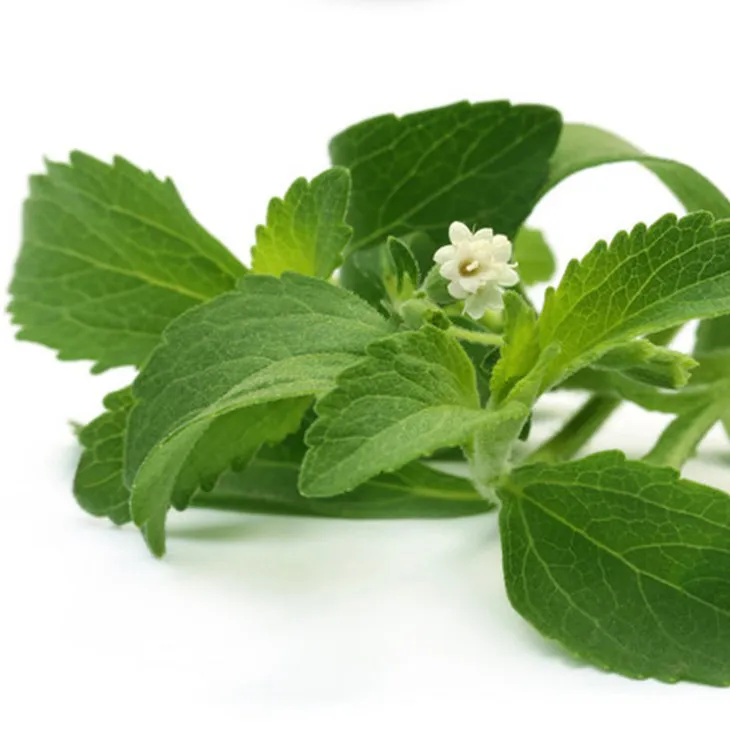- 0086-571-85302990
- sales@greenskybio.com
Five Effects of Stevia Extract + Dosage, Side Effects
2024-11-11

1. Introduction
Stevia Extract, derived from the Stevia rebaudiana plant, has been gaining popularity in recent years as a natural sweetener. It offers a sweet taste without the high calorie content associated with traditional sweeteners like sucrose. This makes it an attractive option for those looking to reduce their calorie intake, especially diabetics who need to manage their blood sugar levels carefully. In addition to its use as a sweetener, Stevia Extract is also being studied for its potential health benefits, including anti - inflammatory and antioxidant properties. In this article, we will explore five key effects of Stevia Extract, discuss proper dosage, and examine potential side effects.

2. Five Key Effects of Stevia Extract
2.1 Low - Calorie Sweetener
One of the most well - known effects of stevia extract is its role as a low - calorie sweetener. Stevia contains compounds called steviol glycosides, which are intensely sweet but contribute very few calories to the diet. For individuals who are trying to lose weight or maintain a healthy weight, replacing high - calorie sweeteners with stevia can be a great strategy. For example, a teaspoon of sucrose contains about 16 calories, while an equivalent amount of stevia extract contains negligible calories. This allows people to enjoy sweet - tasting foods and beverages without the added calorie burden.
2.2 Blood Sugar Management for Diabetics
Stevia extract has shown potential in helping diabetics manage their blood sugar levels. Studies have suggested that stevia may have a minimal impact on blood glucose levels compared to traditional sweeteners. It does not cause a significant spike in blood sugar, which is crucial for diabetics. In fact, some research indicates that stevia may even have a beneficial effect on insulin sensitivity. This means that it could potentially help the body use insulin more effectively, further aiding in blood sugar control. However, it is important for diabetics to still monitor their blood sugar levels closely when using stevia as part of their diet.
2.3 Anti - Inflammatory Properties
There is growing evidence to suggest that stevia extract possesses anti - inflammatory properties. Inflammation is at the root of many chronic diseases, such as heart disease, arthritis, and certain cancers. The anti - inflammatory effects of stevia may be due to its antioxidant components. These components can help reduce oxidative stress in the body, which in turn can dampen the inflammatory response. For example, in vitro studies have shown that stevia extract can inhibit the production of certain inflammatory cytokines. While more research is needed in humans, these initial findings are promising.
2.4 Antioxidant Activity
Stevia extract is rich in antioxidants, which play a vital role in maintaining overall health. Antioxidants help protect the body's cells from damage caused by free radicals. Free radicals are unstable molecules that can cause oxidative stress, leading to cell damage and an increased risk of various diseases. Stevia's antioxidant activity may contribute to its potential anti - aging effects, as well as its role in protecting against chronic diseases. Some of the antioxidants found in stevia include flavonoids and phenolic acids, which are known for their health - promoting properties.
2.5 Oral Health Benefits
Another interesting effect of stevia extract is its potential benefits for oral health. Unlike sucrose, which can contribute to tooth decay, stevia does not promote the growth of oral bacteria that cause cavities. In fact, some studies suggest that stevia may have antibacterial properties in the mouth. This could potentially make it a useful ingredient in oral care products, such as toothpaste and mouthwash. Additionally, since stevia is a non - fermentable sweetener, it does not produce acids in the mouth that can erode tooth enamel.

3. Proper Dosage of Stevia Extract
The appropriate dosage of stevia extract can vary depending on several factors, including the form of stevia (e.g., powder, liquid), the intended use (e.g., sweetening a beverage or baking), and individual sensitivity. Generally, stevia is much sweeter than sucrose, so only a small amount is needed to achieve the same level of sweetness. For example, if using stevia powder, a typical starting dosage might be around 1/8 to 1/4 teaspoon for sweetening a cup of coffee or tea. However, it is important to follow the manufacturer's instructions when using stevia products, as different brands may have slightly different recommended dosages.
When using stevia in baking, the conversion ratio from sucrose to stevia may be more complex. It is often necessary to make adjustments to the recipe, such as reducing the amount of liquid, since stevia does not have the same physical properties as sucrose. Some stevia products are also formulated specifically for baking, which can simplify the process.
In the case of stevia - based sweeteners that are a blend of stevia and other ingredients (such as erythritol), the dosage may also be different. These blends are designed to mimic the taste and functionality of sucrose more closely, but they still require careful measurement according to the product instructions.

4. Potential Side Effects of Stevia Extract
4.1 Digestive Issues
While stevia is generally considered safe for most people, some individuals may experience digestive issues as a potential side effect. This can include symptoms such as bloating, gas, and abdominal discomfort. These digestive problems are more likely to occur when stevia is consumed in large amounts. Since stevia is a sweetener, overconsumption can happen easily if people are not careful about measuring their intake. However, for the majority of people, when used in moderation, stevia does not cause significant digestive problems.
4.2 Allergic Reactions
Although rare, some people may have an allergic reaction to stevia extract. Allergic symptoms can range from mild, such as skin rashes or itching, to more severe, including difficulty breathing or swelling of the face, lips, or tongue. If an individual experiences any signs of an allergic reaction after consuming stevia, they should immediately stop using it and seek medical attention. People with known allergies to plants in the Asteraceae family (which includes the Stevia rebaudiana plant) may be at a higher risk of developing an allergic reaction to stevia.
4.3 Interaction with Medications
There is some concern about possible interactions with medications when using stevia extract. For example, stevia may interact with medications that are metabolized by the liver, potentially affecting their efficacy or increasing the risk of side effects. However, more research is needed to fully understand these interactions. If you are taking any medications, it is advisable to consult your healthcare provider before using stevia extract regularly, especially if you are taking medications for a chronic condition such as diabetes or heart disease.

5. Conclusion
Stevia extract offers several potential benefits, including its use as a low - calorie sweetener, its role in blood sugar management for diabetics, anti - inflammatory and antioxidant properties, and potential oral health benefits. However, like any substance, it is important to use it in moderation and be aware of potential side effects. The proper dosage of stevia extract depends on various factors, and individuals should follow the manufacturer's instructions when using stevia - based products. While stevia is generally safe for most people, those with digestive sensitivities, a history of allergies, or who are taking medications should exercise caution. Overall, stevia extract can be a useful addition to a healthy diet for those looking for a natural sweetening alternative.
FAQ:
What are the five key effects of stevia extract?
The five key effects of stevia extract include: being a low - calorie natural sweetener which is suitable for diabetics; having anti - inflammatory properties; possessing antioxidant properties; it may help in blood sugar regulation; and could potentially have a positive impact on dental health as it doesn't contribute to tooth decay like some sugars.
How is stevia extract used as a natural sweetener?
Stevia extract can be used as a substitute for sugar in various products such as beverages, baked goods, and desserts. It can be added directly to coffee, tea or other drinks in a similar way as one would add sugar. In baking, appropriate adjustments may need to be made according to the recipe, but it generally provides a sweet taste without the high calorie content of regular sugar.
What is the proper dosage of stevia extract?
The proper dosage of stevia extract can vary depending on the form of the extract and the intended use. For example, if using stevia powder, a general starting point could be about 1/8 - 1/4 teaspoon for a cup of coffee or tea, and then adjust according to personal taste. However, it's important to follow the instructions on the product label if it is a commercial stevia product. Also, in food production, manufacturers usually follow regulatory guidelines for the appropriate amount to add.
Are there any side effects of stevia extract?
For most people, stevia extract is safe with few side effects. However, some individuals may experience mild gastrointestinal discomfort such as bloating or nausea in rare cases. Additionally, there have been some reports of allergic reactions, but these are also very uncommon. High - dose long - term use may also have some unforeseen effects, but more research is needed in this area.
How does stevia extract help diabetics?
Stevia extract helps diabetics as it is a low - calorie sweetener that does not significantly raise blood sugar levels. It can be used to sweeten foods and drinks without the worry of glucose spikes, allowing diabetics to enjoy sweet - tasting items while still managing their blood sugar levels effectively.
Related literature
- The Health Benefits of Stevia Extract"
- "Stevia: Dosage, Effects and Safety Considerations"
- "Anti - inflammatory and Antioxidant Properties of Stevia"
- ▶ Hesperidin
- ▶ citrus bioflavonoids
- ▶ plant extract
- ▶ lycopene
- ▶ Diosmin
- ▶ Grape seed extract
- ▶ Sea buckthorn Juice Powder
- ▶ Beetroot powder
- ▶ Hops Extract
- ▶ Artichoke Extract
- ▶ Reishi mushroom extract
- ▶ Astaxanthin
- ▶ Green Tea Extract
- ▶ Curcumin Extract
- ▶ Horse Chestnut Extract
- ▶ Other Problems
- ▶ Boswellia Serrata Extract
- ▶ Resveratrol Extract
- ▶ Marigold Extract
- ▶ Grape Leaf Extract
- ▶ blog3
-
Cranberry Plants and Skin - care Products.
2024-11-11
-
Black Garlic Extract
2024-11-11
-
Green coffee bean Extract
2024-11-11
-
Kupilu Extract
2024-11-11
-
Tinospora cordifolia extract
2024-11-11
-
Acerola Extract
2024-11-11
-
Red Date Extract
2024-11-11
-
Artichoke Leaf Extract
2024-11-11
-
Centella Asiatica Extract
2024-11-11
-
Red Wine Extract
2024-11-11
-
Quercetin
2024-11-11





















